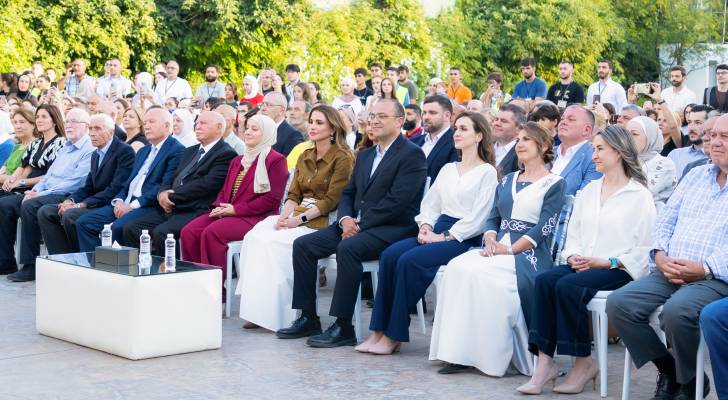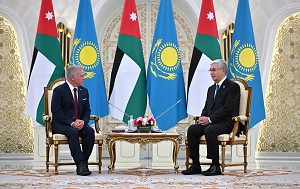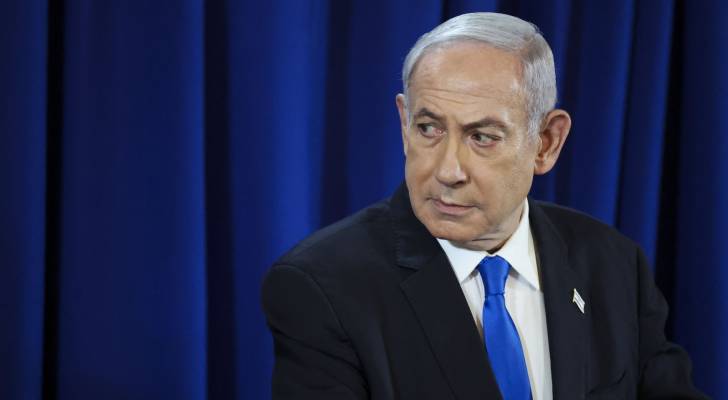Officials, academics welcome reactivation of National Service Programme
The Jordan Times
AMMAN — Former officials, academics and columnists praised the recent government decision to reinstate the National Service Programme (NSP) that was halted in 1992.
On Monday, Minister of Government Communications Mohammed Momani and Director of Military Media Brig. Gen. Mustafa Hiyari announced details of the new and phased format of the NSP.
Momani said the programme aimed at preparing the Kingdom’s youth to take on active roles in national development and to contribute to the country’s progress and safeguard its achievements.
The minister said that the structure of the programme will include two integrated tracks: a military training component led by the Jordanian Armed Forces – Arab Army (JAF), and a theoretical knowledge component delivered by civilian experts in economic, cultural, social, and intellectual fields.
“The goal is to provide a comprehensive experience that combines physical discipline with personal and civic development,” Momani said during the press conference.
Senator and former interior minister and director of the Public Security Directorate Hussein Hazza' Majali wrote in a column that was published in Al Rai Newspaper that the broader goal of the NSP is to direct the energies of young people toward protecting national gains and enhancing their ability to resist ideological and behavioral threats, especially in light of the spread of societal violence and digital extremism among some groups.
The biggest challenge now, according to Majali, is to transform this vision into an integrated national institutional program, managed in partnership between state institutions, the private sector, and civil society.
This ensures that military service is not just a short experience, but rather a sustainable path toward building the new Jordanian individual: a productive, committed, aware, and responsible individual, Majali wrote.
In its initial phase, Momani said that the programme will target 6,000 male participants born in 2007, who will have turned 18 by January 1, 2026, distributed across three groups of 2,000.
“They will be selected through an electronic lottery system based on scientific and demographic considerations, ensuring fair distribution across governorates. Each governorate will have 300 participants, with the exception of Amman (1,500), Zarqa (900), and Irbid (900),” he said.
Ad-Dustour Newspaper Columnist Randa Hatamleh praised the government’s decision to reinstate the NSP, stating it is a reaffirmation that that national identity “is not just a slogan to be raised, but rather a lived experience and a responsibility to be translated into reality”.
Military service will refine the character of young people, instil discipline in them, deepen the concept of teamwork, and remind them that Jordan was built with sweat and sacrifice and can only be preserved through awareness and willpower, Hatamleh wrote.
Reinstating military service is not just an official decision, she added, but rather an open invitation to every young man and woman to be partners in shaping the future because the military service will provide them with life skills and open the doors to discipline, hard work, and perseverance—values needed by any generation that wants to write its own chapter in the nation's history.
The NSP, Momani said during the press conference, will continue on an annual basis and is designed to be flexible in its implementation to accommodate university students and working individuals. “Participation will be recognised as equivalent to 12 academic credit hours at universities.”
Political sociology professor at the German Jordanian University, Bader Madi, told The Jordan Times that the NSP will serve in two important domains.
“Enrolling the youth in the NSP will help them set clearer goals and focus on better values since many are being affected negatively by what they are receiving via social media outlets,” Madi said.
The NSP will further help the youth set their own goals and depend on themselves rather than depend on “their families to secure them a job. They will also learn to become prouder of their national identity,” Madi added.
“The majority of Jordanians have big faith and trust in their army. People want the youth in Jordan to go through this important experience that would polish their personality and build their skills,” according to Madi.
Momani said that the prime minister had instructed the development of the programme nearly a year ago and has since monitored its progress through a committee headed by the minister of interior, with membership from all relevant institutions.
Momani pointed out that Crown Prince Hussein’s recent meeting with young Jordanians highlighted their role as the largest and most influential segment of society.
On Sunday, HRH Crown Prince Hussein announced the reactivation of the National Military Service Programme during a meeting with youth from Irbid Governorate.
The Crown Prince said during the meeting that young Jordanians must be prepared to serve and defend their country, adding that citizens who have participated in national military service understand the importance of this experience, according to a Royal Court statement.
His Royal Highness noted the importance of the programme in strengthening national identity and young people’s connection to their homeland, noting that serving with the Jordan Armed Forces-Arab Army builds character and instils discipline.




